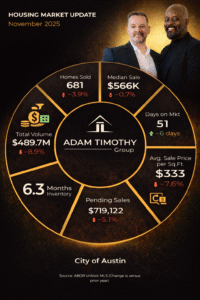Market Perspectives Blog Post
Expert Opinions
In a recent interview on CNBC’s “Last Call” hosted by Brian Sullivan, Dave Liniger, the co-founder of Re/Max, discussed the current state of the U.S. housing market, particularly in the context of interest rates. Liniger expressed optimism that the housing market is nearing the end of a cycle characterized by high interest rates. He noted that while the market has faced significant challenges due to these elevated rates, there are indications that we may be approaching a turning point where rates could begin to stabilize or decrease.
This perspective is particularly relevant as it reflects broader sentiments in the real estate sector where market participants are anticipating changes in monetary policy that could ease the cost pressures associated with buying homes. Liniger’s insights are valuable for stakeholders looking to understand the trajectory of the housing market as it navigates out of a period of high interest rates.
For more details on the interview with Remax cofounder, you can visit the source here: CNBC.
Experts from Zillow and Redfin provide various insights into the impact of elevated interest rates on the housing market. Both companies suggest that while the market may see some improvements in inventory and prices into 2024, high mortgage rates are expected to persist, affecting the pace of recovery in the real estate sector.
Redfin’s predictions for 2024 include a nuanced view of the market dynamics. They anticipate some regional price declines, particularly in areas like coastal Florida, where risks such as climate change impact desirability and insurance costs. Conversely, regions perceived as more climate resilient, like Albany and Rochester in New York, may see price increases. Redfin also forecasts a trend of “boomerang migration,” where individuals who moved to more affordable locales due to remote work policies during the pandemic may return to major job centers as these policies are reversed (Redfin).
Zillow echoes some of these sentiments, noting that while there may be a slight easing in the market for buyers, significant challenges remain due to stubbornly high mortgage rates. Both firms highlight the ongoing affordability issues and the slow shift towards a more balanced market (Money).
Mortgage Bankers Association VIew
The Mortgage Bankers Association (MBA) anticipates that mortgage rates will decrease throughout 2024 and into 2025. The MBA’s forecast suggests that by the end of 2024, the average 30-year fixed mortgage rate could decline to around 6.1%, and further to 5.5% by the end of 2025. This expectation is based on the premise that the Federal Reserve’s rate hikes may slow down, leading to a narrowing spread between mortgage rates and Treasury rates.
The MBA also predicts a mild recession in the first half of 2024 due to a combination of factors, including the depletion of pandemic-era savings, higher interest rates, and tighter credit conditions. Despite these challenges, the demand for homes is expected to remain strong, particularly from first-time homebuyers who are entering their prime home-buying years. This ongoing demand, coupled with a tight inventory, particularly for entry-level homes, is expected to support continued price growth in the housing market (MBA Newslink) (theMReport).
What does all of this mean for Buyers?
At the end of the day, it appears unlikely that interest rates will see drastic changes this year, and it is even less probable that they will return to the historically low levels experienced during the pandemic. According to insights from the Mortgage Bankers Association, while a gradual decline in mortgage rates is anticipated, a new normal around 5% could be expected, marking a shift in what homebuyers might consider a favorable rate moving forward (MBA Newslink) (theMReport).
Understanding these aspects can help buyers make informed decisions in a real estate market characterized by relatively elevated mortgage rates. Please email Info@adamtimothy.com to start your home buying or selling journey. The Austin market can be tough to navigate. Don’t try to do it alone. Let’s Talk.




